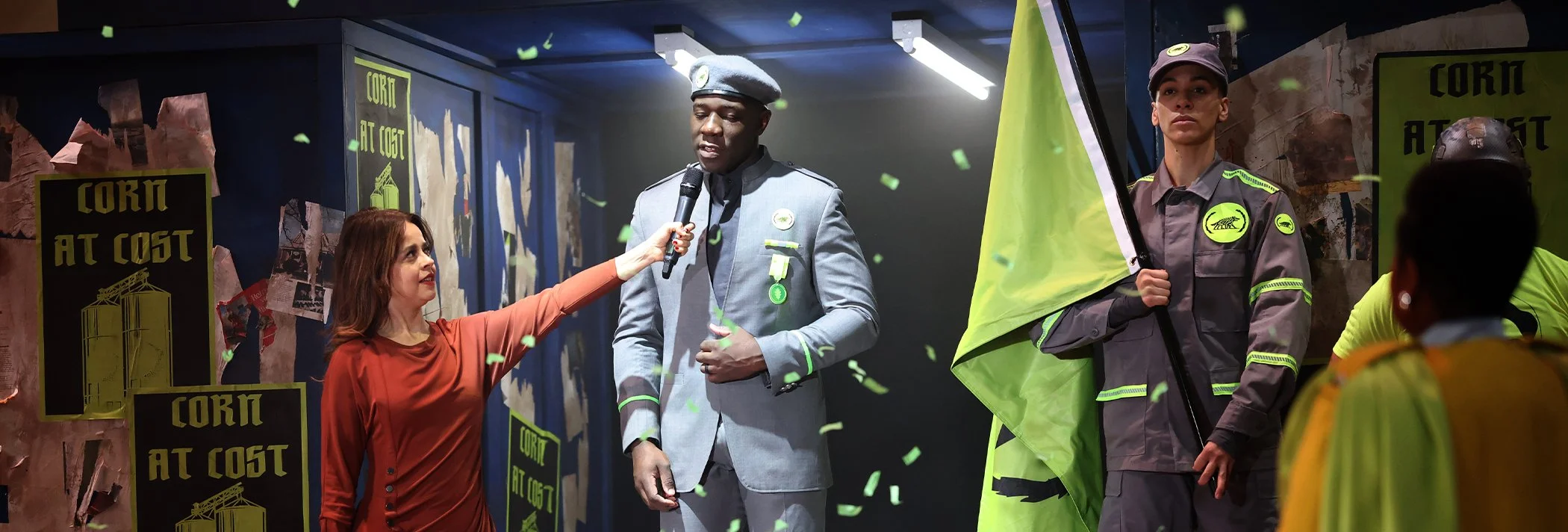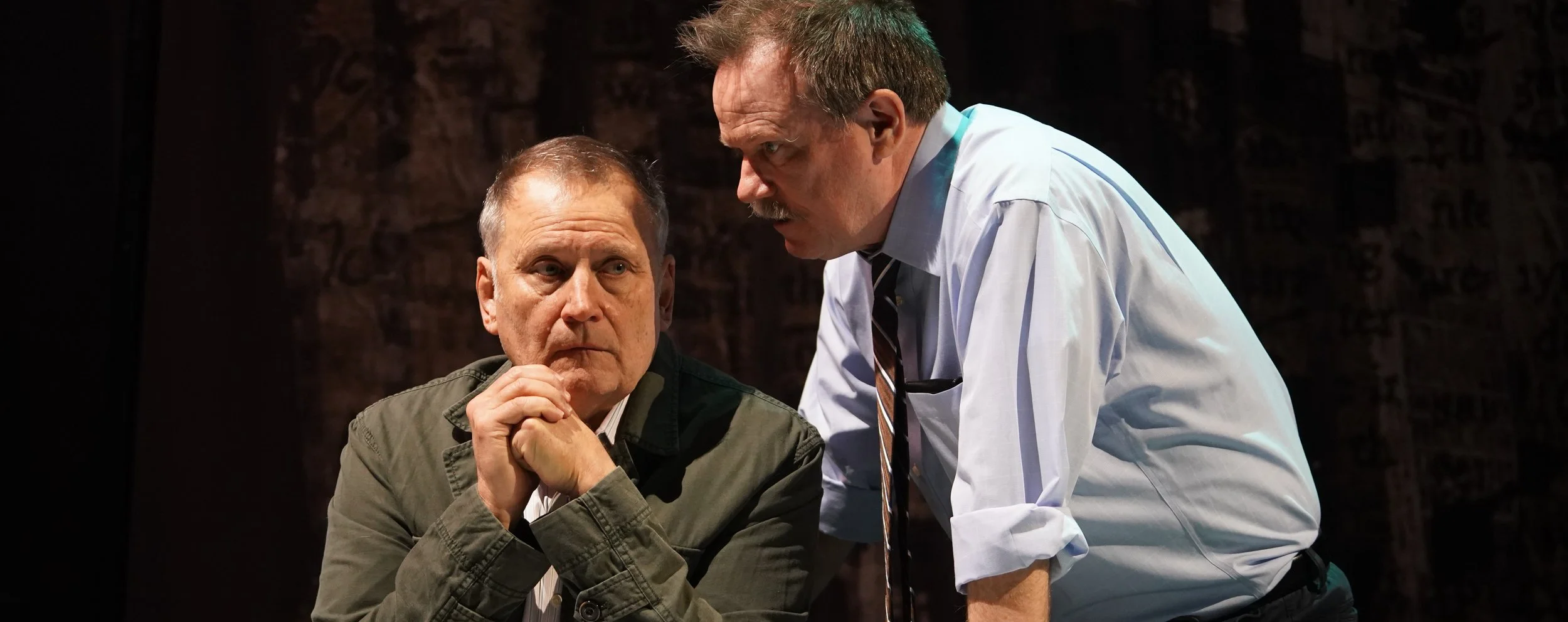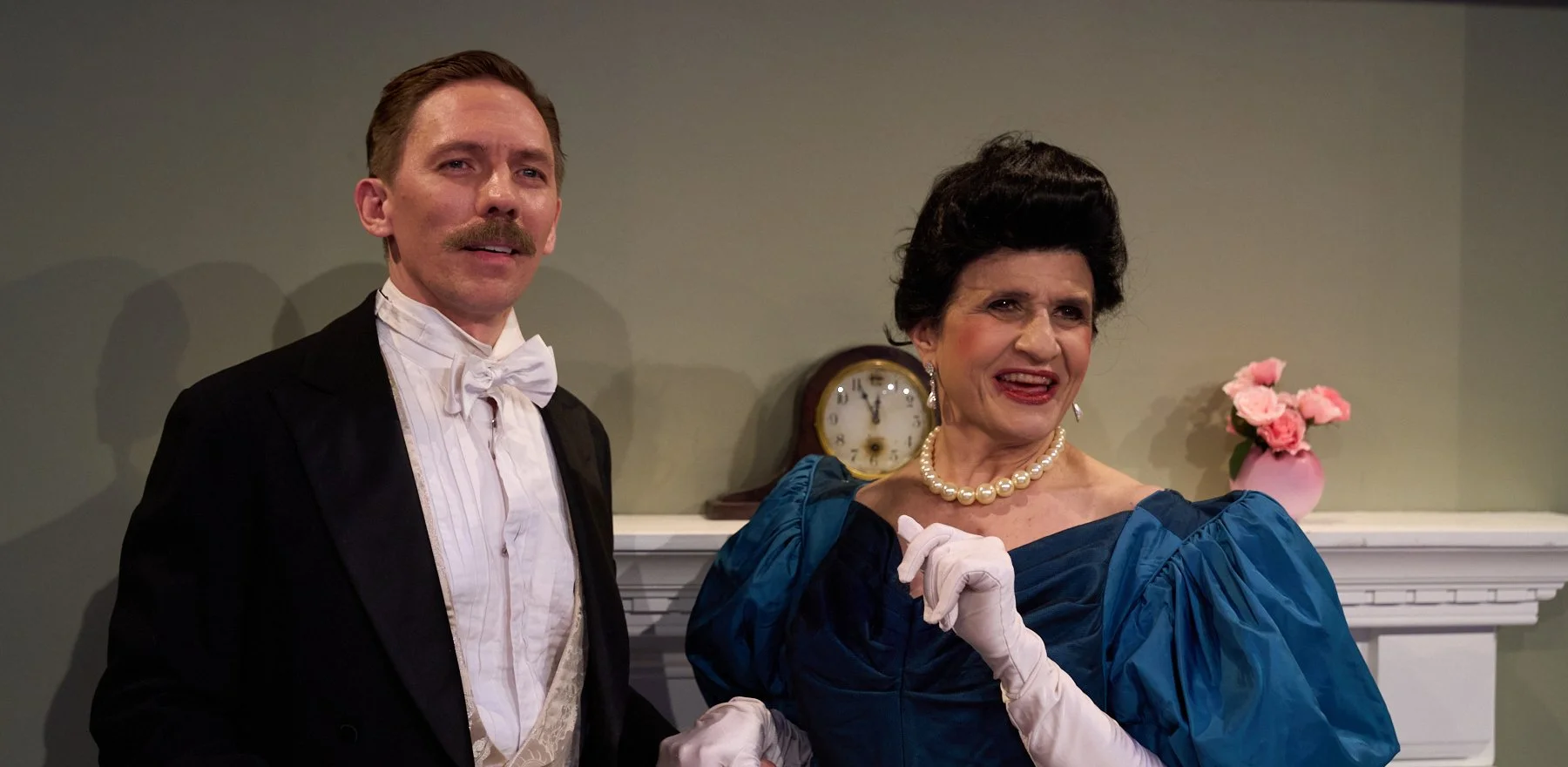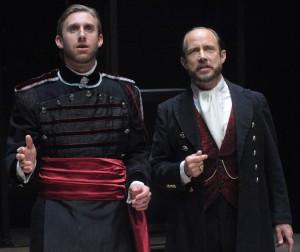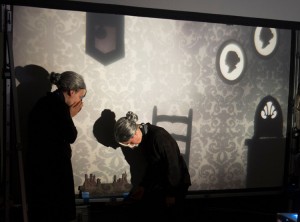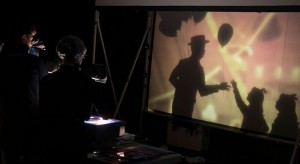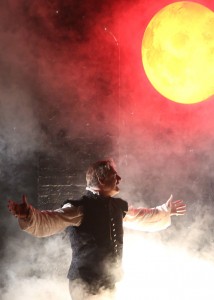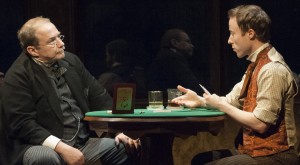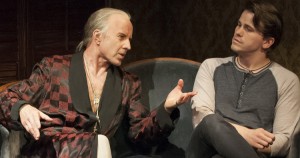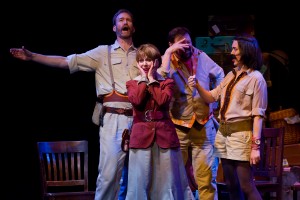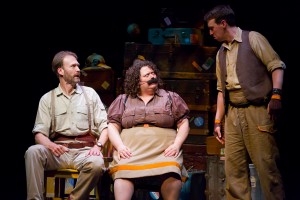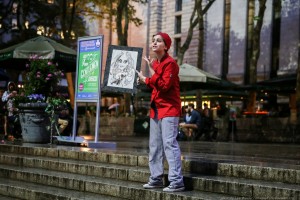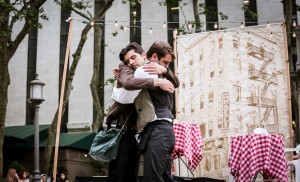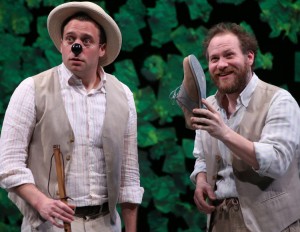The bodies of about 1,000 dead Muslim men and boys are still missing to this day in the forests of Srebrenica, a small mountain town in Southeastern Europe. During the Bosnian War in April 1993, the United Nations declared Srebrenica a “safe area” in their peacekeeping mission and oversaw a Dutch battalion under Lieutenant Colonel Thom Karremans. In July 1995, commander Karremans failed and approximately 8,000 Muslim males between the ages of 12 and 77 were murdered by the Bosnian Serb Army of Republika Srpska under the "Butcher of Bosnia" Colonel General Ratko Mladić. Today 73-year-old Mladić supposedly suffers from "deception of memory" and struggles with his recollection of past events. At the United Nations, Russia, Britain and the United States are still arguing over if the Srebrenica massacre should be categorized as genocide. This tragedy seems like it happened last week in The International by Irish actor and playwright Tim Ruddy.
Although the Srebrenica massacre inspired the creation of this production and it is loosely based on the actual events, The International is a work of fiction. The United Nations, Srebrenica, Karremans and Mladić are not mentioned anywhere in the script and it takes place during an unspecified armed conflict in Bosnia and Herzegovina during 1995. The International focuses on evoking a greater conversation about the bureaucracy, ineffectiveness and self-righteousness of international peacekeeping efforts. It echoes the characteristics of other historical atrocities like the Armenian and Rwandan genocides.
The well-written script, seamless performances, and intentional direction by Christopher Randolph effectively captures the voices of a beautiful farm woman Irene (Carey Van Driest), an aspiring artist Dave (Ted Schneider), and a naive Dutch soldier Hans (Timothy Carter). The three share their experiences next to seven colorful, abstract paintings that transform throughout the story as the lighting by Derek Van Heel is brilliantly manipulated. As specific colors are intensified by the lighting, the paintings take on different images with great subtly. The characters appear to be visiting a modern art gallery or museum in Los Angeles or New York by themselves.
At first, the production occurs as three separate monologues, but when the story takes a sudden turn, we are thrown into the interweaving of their lives. The issue at hand is rooted in the plot and the characters eventually show where they stand and their true identities. We witness how this armed conflict impacts Irene’s family, Hans’ personal character, and the $800 bet Dave could win if the enemy is successful at annihilating everyone. Dave would use his winnings to finally take his wife Bani, and their 4-year-old daughter Emery to Disneyland.
For those living in the United States, wars in other countries are often experienced by flipping through television channels or social media sites. Dave represents a demographic in America, and Schneider’s portrayal of him is so authentic that audience members will soon realize that they have met someone like Dave before. As an out-of-work sculptor who is struggling to live the dream in Los Angeles while providing for his family, Dave has a lot to lose. When Dave discovers his daughter is watching the news he says, “Not just the news, but the world news on CNN.” In Dave’s world, international affairs are a foreign language compared with the familiar sports and reality shows he watches in bars. The execution of this character is crucial because Dave provides a lens into this story that is instantly relatable.
This production’s value is in its elusive ability to successfully show the effects of war without overtly preaching, passively whining, or trying to persuade people one way or the other. Audiences are left to draw their own conclusions and make comparisons to similar historical events. The material is not tear-jerking, but it does call for a standing ovation and is a must-see for general theatergoers. To convert audience members from observers of a staged horrific incident into participants, there needs to be greater emotional pull. The Peter Jay Sharp Theatre is modern and airy with light, wooden seats and exposed brick walls. Do not take a photo of the stage with your cell phone or an usher may try to enforce the house rules by grabbing your phone.
The International does what live theater can do best, and that is to eloquently and magically show us the world that we are living in. It is a story well worth telling. The subject matter is nothing new, but the ingenious presentation and delivery of this production are powerful enough to have people stop and reflect the next time they are going to watch a war on CNN or Fox News. Audiences will leave this play with a different, possibly profound, perspective about the global impacts of warfare than what they originally had in mind.
The International runs until August 2 at the Peter Jay Sharp Theater (416 West 42nd St. between 9th and 10th Aves. in Manhattan). Evening performances are Tuesday-Saturday at 7:30 p.m. and matinee performances are Saturday and Sunday at 3 p.m. Tickets are $45 and $65 and can be purchased by visiting TicketCentral.com or by calling 212-279-4200.

